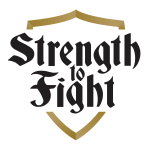By Caitlin Corbett:
Sexual assault is a violation of everything about a person. It violates their body, mind, and soul. Sometimes, it violates their trust in a particular person, or even their trust in all people. It hurts so deeply that most victims cannot describe what they are going through.
What makes this violation worse is that most victims have no idea where to go for help. They can become trapped in a cycle of pain, shame, and confusion, with no foreseeable exit. If this describes you, or someone you know, I am here to tell you that you are NOT alone. There is help available.
In my experience working with victims, both personally and professionally, I have seen four main categories of what victims say they need. Each person’s experience is different, and therefore their needs will be different as well. Victims may choose to access all or none of these services, in the order they choose, regardless of how long it has been since the assault.
1. Health
Ideally, health describes a state of complete physical, mental, and social well-being. Being sexually assaulted may encroach upon any or all of these areas. Physically, people may suffer bruises or injuries, contract an STI (including HIV), or become pregnant.
Hospital staff are often trained to handle these types of situations with respect and sensitivity. They can offer pregnancy and STI testing, medications, and referrals. In some places, they are also able to perform a sexual assault evidence kit to document the injuries and collect any DNA that could be used in a police investigation. These processes may be time-consuming and require multiple appointments. However, many victims find that they are not able to begin coping with the mental and social impacts of the assault until they know their body has been taken care of.
2. Informal Supports
When anything bad happens to us, one of the first things we want to do is call someone for support. Telling your story can be one of the most important steps to begin your healing. Once you have told someone, you are no longer walking through this journey alone. It breaks the shame, silence, and isolation that grip and control victims.
The question, then, is who do you tell? This will vary from person to person, but usually first choices include:
- Friends
- Close family members
- Neighbours
- Mentors
- Faith community members
A victim is allowed to tell as many, or as few people as he or she chooses. Victims should never feel pressured to share with someone they do not want to or before they are ready. Further, unless the person is in immediate danger, their story must not be shared without their permission.
3. Formal Supports
In most places, victims can access services where volunteers and staff are trained to support them. Victims may be offered some or all of the following:
- Information and advice
- Counseling
- Support groups
- Safety planning
- Assistance with the criminal justice system (police statements, victim impact statements, court support)
- Support through the compensation system
- Referrals to other agencies
Most Canadian victim services are listed on the Department of Justice Victim Services Directory, which provides a search by postal code. Police officers and hospital staff may also be able to point victims in the right direction.
4. Justice
Many people who have been sexually assaulted want to see their assailant punished for his or her actions. If this is the case, the victim may want to consider reporting his or her assault to the police. The criminal justice system can be a long and taxing process that does not always produce satisfying results. However, there are still many valid reasons for a victim to consider reporting sexual assault to the police.
Other victims simply want to know the answers to their questions (“Why me?” “What did I do?” “Why did you hurt me?”). Restorative justice is becoming an increasingly popular way to approach these problems. Usually mediated by a professional, victims are able to communicate with the perpetrator in a number of ways (letters, emails, face to face, etc.). By doing so, victims can ask their questions and meet a need for justice by having the person who hurt them recognize, acknowledge, and possibly apologize for what they have done.
——-
About Caitlin Corbett, Guest Blogger: While completing her Bachelor’s degree in Health Sciences at the University of Ottawa, Caitlin offered a leadership role in a campaign against modern-day slavery. It was through that role that she became passionate about supporting
Twitter: @C_Squared07
